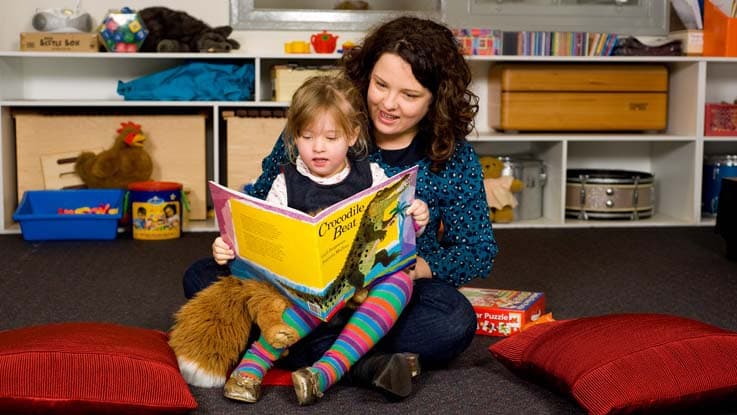
Children experiencing disadvantage often have fewer books at home, which impacts the development of vital literacy skills.
This can mean children start school behind – and most children who start school behind risk missing key learning benchmarks throughout their education.1 That’s why supporting early literacy for children experiencing disadvantage is so important.
Strong literacy skills are vital for all aspects of a child’s learning – and are essential in daily life.
Research shows that when parents and carers read to young children, their child’s reading and other cognitive skills are improved, which benefits them throughout their life.2

The reading gap in primary school between the lowest socio-economic students (SES) and the highest SES is equivalent to almost 3 yrs of schooling.1
The literacy foundations built by children during their primary and early secondary years are crucial to their ability to do well at school. Research identifies a clear link between the development of cognitive skills such as literacy and numeracy at an early age and higher levels of education achievement, greater employability, higher earnings and greater social participation.2
Literacy programs
-

student2student
Our student2student reading program matches students from Years 3–8 who are up to two years behind in their reading skills with Buddies who have good literacy skills, to help and encourage them. -

Let's Read
Let's Read encourages parents and carers to read with their young children and helps them to develop their child's ability to name letters, play with word sounds, and love books.
1 Department of Education Science and Training (2005)Teaching Reading: National Inquiry into the Teaching of Literacy. Commonwealth of Australia, Canberra.
2 Australian Council for Educational Research Ministerial Council for Education (2010) National Assessment Program: Literacy and Numeracy Report. Early Childhood Development and Youth Affairs (MCEEDCDYA) .
